 Petzlover
PetzloverKaikadi is originated from India but Talbot is originated from France. Kaikadi may grow 24 cm / 9 inches shorter than Talbot. Kaikadi may weigh 29 kg / 63 pounds lesser than Talbot. Both Kaikadi and Talbot has almost same life span. Both Kaikadi and Talbot has almost same litter size. Both Kaikadi and Talbot requires Low Maintenance.
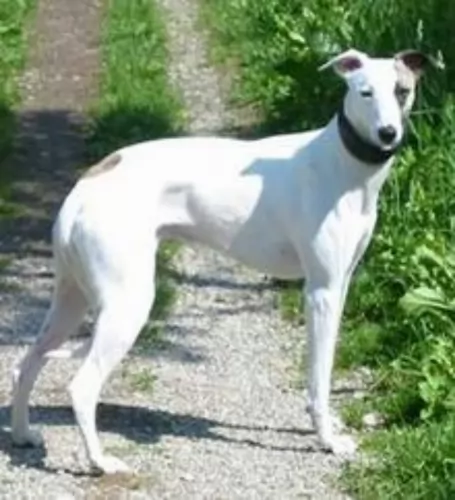 The Kaikadi or Kai Kadi is a terrier dog, hailing from India. Not much is available on the history of the dog, but today you won't easily find original Kai Kadi in India. This is because they have essentially been mixed with stray dogs of India as well as Pariah.
The Kaikadi or Kai Kadi is a terrier dog, hailing from India. Not much is available on the history of the dog, but today you won't easily find original Kai Kadi in India. This is because they have essentially been mixed with stray dogs of India as well as Pariah.
It is for this reason that the dog isn't recognized as a standardized breed by any of the leading kennel clubs.
Known as the Talbot Hound, nobody really seems to have accurate records as to the origins of the Talbot dog breed but it seems to have originated in France.
It is believed that the Talbot, with his excellent nose, was a hunting dog, but he is now extinct.
It is thought that the dog descends from the beagle and the bloodhound. It came to England in 1066 and vanished towards the end of the 18th century.
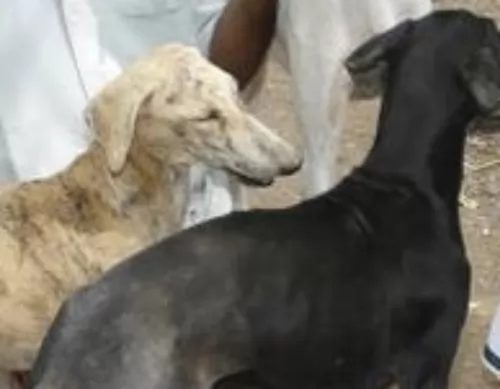 These dog have always been used for hunting, guarding and herding in India and today he makes a good watchdog, watching over his human family.
These dog have always been used for hunting, guarding and herding in India and today he makes a good watchdog, watching over his human family.
It's not a large dog though and he stands at roughly 35 to 45cm in height and weighs 17 to 21kg. He is lean and muscular, looking similar to the Italian Greyhound or Whippet.
He has a short smooth coat and the color can be patterned white, tan and black. The head is long and thin, as are the legs, and his tail is long and thin too. The floppy ears stand erect when alert.
The Kaikadi is an affectionate, alert, energetic dog. He won't do well in a city environment with a tiny garden as he requires a large garden to run in.
He is a dog that will need to be trained and socialized if you want him to be obedient and to get on well with children in the home as well as pets.
He can be a fairly quiet, docile dog inside but outside when there is a game to be had, he becomes lively and animated. They are quite sensitive, so while they get on well with children in the home, he won’t respond well to large families with lots of rowdy, undisciplined children as it makes him anxious.
The Talbot hound was a large, white purebred dog. He stood at roughly 58 to 69cm and weighed between 36 and 50kg.
He had a large head and a short, smooth, coarse pure white coat. He has a long tail which he held upright and fairly long floppy ears. He was a slow but efficient scenthound.
It is believed that this strong, hard working dog was gentle, loving and loyal and that he would have made an excellent family pet.
They were the kind of dogs that needed lots of social interaction with his human family. His amicable nature would have meant him getting on well with children and other dogs.
Slow, it’s a dog that had low intelligence and he may have taken a long time to learn any simple tricks or commands. If he were around today he wouldn’t have been suited to city living as he was a vocal breed – having quite a selection of barks and howls to voice his opinion.
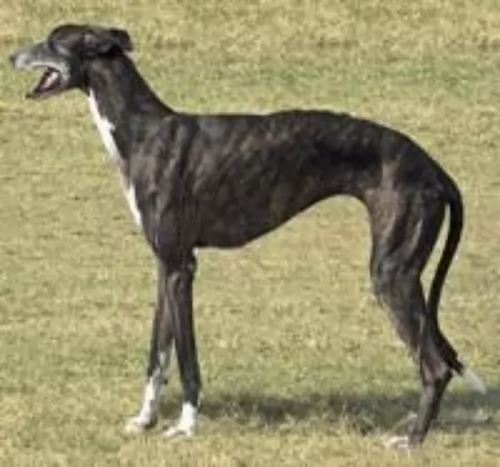 Your Kai Kadi loves running and playing outside, after all he has always been a hunting dog. He will love to spend time with you outside playing.
Your Kai Kadi loves running and playing outside, after all he has always been a hunting dog. He will love to spend time with you outside playing.
The Kaikadi is a low maintenance dog too. Provide your Kaikadi with everything that makes a dog happy and in exchange you’ll get yourself a loyal, loving pet who wants to be your friend.
The Talbot is extinct, but he was no doubt a docile, calm kind of dog that would have made a great family pet.
He would have been an ideal dog for first time dog owners too as he was a gentle, affectionate dog.They were tough, protective, stubborn but loving and loyal, and more’s the pity that this dog has disappeared.
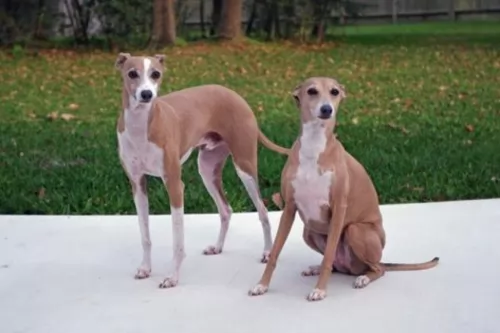 When you’ve got a Kai Kadi, make sure you understand some of the health risks that come along. This is a healthy dog breed so you’re not likely to have much going wrong with him, but you need to know that he can get sick and then you need to have the name of a good vet for medical treatment -
When you’ve got a Kai Kadi, make sure you understand some of the health risks that come along. This is a healthy dog breed so you’re not likely to have much going wrong with him, but you need to know that he can get sick and then you need to have the name of a good vet for medical treatment -
A sudden drop in blood sugar, which is many times brought on by stress, can make your dog lethargic and even have slight tremors in the face. It could be a hypoglycemic attack. See the vet immediately.
The pancreatitis can become inflamed and your dog could be vomiting, have diarrhea and have abdominal pain. There are quite a few things that can cause pancreatitis such as obesity, infection as well as stress.
Nobody can say what the health status of the Talbot dog was, but being a hunting dog, out in the open and getting plenty of exercise, he was no doubt a healthy dog. But all dogs can fall ill at some time or another with any one of the many dog illnesses there are -
Ear infections in dogs are quite common, but more so with dogs that have floppy ears.
You’ll see your pet scratching and pawing at his ears and shaking his head. There will in all likelihood be redness in your pets ears and you may even detect an abnormal odor.
There are quite a few things that can cause these ear infections in dogs such as ear mites, an excess of dirt and wax and bacteria.
Don’t allow your pet to suffer – get him to the vet. Your veterinarian will also show you how you can clean the ear for future times with a gentle cleanser. You have to be so careful not to rupture the ear drum, and some people prefer to get their vet to do this or professional groomers.
The Talbot could have suffered with ectropion – when the lower lids are turned out. Ectropion disrupts the function of the lower lid so that it can't protect the eye, and there is abrasion of the surface of the eye.
This condition can also bring on conjunctivitis. Get your pet to the vet for treatment and relief.
The lifespan of the Talbot was anything from 9 to 12 years of age, and one or two other health problems that could have shortened his life were dermatitis, cancer, hip dysplasia and eye infections.
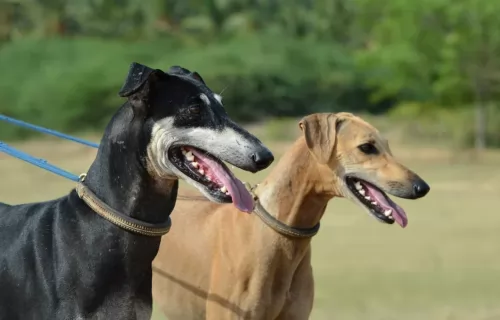 Owning a dog is a responsibility, requiring you to look after a living being just like you would any family member of yours, otherwise why get a dog in the first place?
Owning a dog is a responsibility, requiring you to look after a living being just like you would any family member of yours, otherwise why get a dog in the first place?
You may want a dog for watchdog purposes, but as a living creature, it is important to develop a relationship with your pet and to show him that you love and appreciate him.
There are many things to do to ensure you have a healthy, happy 4-legged canine member in your household
Make sure he has fresh, cool water available to him around the clock.
Provide him with a warm, dry place to sleep.
Provide him with wholesome food to maintain health. There are many excellent commercially manufactured foods on the market. Buy one according to the size and energy levels of your pet. Try to sometimes add cooked home-made food into his kibble such as cooked chicken, brown rice and vegetables as well as some raw meat from time to time. This diet is guaranteed to keep your pet mentally and physically well.
Check your pets nails, ears and eyes regularly. He should be checked for fleas and ticks when you brush him twice a week. Have him examined by a veterinarian as soon as you suspect something is amiss with him. Keep him up to date with his vaccinations.
The Kaikadi is an energetic dog so make sure that you provide him with the opportunity to be exercised. Take him on walks or hikes, play ball and rope games with him and go swimming with him to ensure he remains lean and muscular.
Have him trained and socialized as it takes off the rough-edges of a dog.
The Talbot with his short hair would have been looked upon as a low maintenance breed and would have required a brush now and again.
Because of the floppy ears, they would have needed to be checked inside for infection.
The Talbot was a strong, hard-working kind of dog so if commercially manufactured dog food was available in that time, you would have ensured a good quality one for strong, energetic dogs.
At that time, Talbot dog owners tossed their dogs bits of raw meat. Home-made food like boiled chicken, brown rice, spinach, carrots and sweet potatoes without any exotic flavorings would have been an excellent diet.